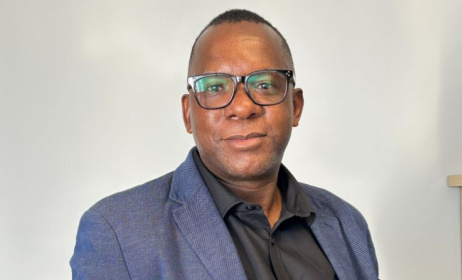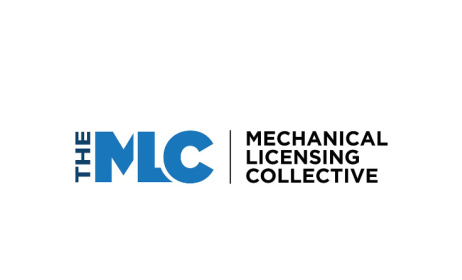No end in sight for Kenyan royalties quagmire
A Facebook post by the Music Copyright Society of Kenya’s (MCSK) has triggered a heated debate among musicians ahead of the society’s annual general meeting (AGM) on 19 October.
 Percussionist Joseck Asikoye.
Percussionist Joseck Asikoye.
The Facebook update was part of an online rebranding campaign that the former music royalty collection body began on 28 September using the hashtag #mcskchanges to engage with its members.
The post, which was published on 8 October, reads: “Democracy means power to musicians. What if someone took away your right to decide your leaders? We have fought in silence, and this has meant our members dealing with delayed royalties, a smear campaign, baseless court cases and worse off misinformation without knowing why. We have vowed to fight a transparent fight. From now on you'll get informed of your right beyond royalties.”
Registered and non-registered members took the opportunity to highlight their frustrations and brought to light some of the challenges they had experienced with the MCSK.
“I for one feel cheated and robbed of my dues,” Kenyan jazz musician Benjamin Webi wrote. “You can’t talk about ‘power to musicians’ when you do everything but empower them economically. Your people don’t respond to emails, queries go ignored, phone call conversations with your staff are cold, sometimes rude, unfriendly and worse, you can’t give clear information about questions raised concerning the same royalties you purport to be doing everything possible to remit.”
“Until now, so many questions have gone unanswered. No resolution in sight, yet you talk of fighting a war. Which one exactly? Please note, some of us have been members for over a decade. So this comes from a place of acute disappointment and in honesty, a place of resentment.”
Some artists went as far as saying they had stopped recoding and releasing music due to the strenuous relationship they had with the MCSK.
“You are one of the reasons I never recorded my music,” producer Emperar Aizanas III wrote. “I don’t think I will ever give you the pleasure of eating from my sweat. I basically lost all trust in this thing.”
Other members proposed an audit of the organisation's accounts before it could regain their trust.
Jabali Afrika band member Joseck Asikoye, who goes by the name Muzi Eki Mutsibuanyi Wa'nanjero, wrote: “Get off social media and open up the books for scrutiny. Some of us are owed 24 years’ worth of royalties. Stop these games and own up #mcskchanges on social media? Changing from pickpockets to gangsters. Please stop this PR. We need an audit.”
It is the musicians’ hope that the aforementioned issues will be addressed during the MCSK AGM at Masinde Muliro University of Science and Technology in Kakamega County next week. The AGM is normally open to all MCSK members.
MCSK has had a tough year after the Kenya Copyright Board (KECOBO) revoked its licence in February on grounds that the society did not file its returns. MCSK’s license expired on 31 December 2016 and KECOBO went ahead to grant the Music Publishers Association of Kenya (MPAKE) a licence to collect royalties on behalf of musicians. The licence is up for renewal in March 2018.
This was followed by a series of court cases between KECOBO, MPAKE, the MCSK and the Performers Rights Society of Kenya (PRISK). Eventually the High Court of Kenya, through Justice Jesse Njagi, issued a directive in April 2017 overturning KECEBO’s decision to approve MPAKE as the country’s royalty collection body.
An MCSK representative told Music In Africa in July that the society had filed for contempt of court against KECOBO on 25 May after the board had failed to obey the court’s order, which also barred KECOBO from issuing press statements as well as commenting on matters concerning royalty collection.
A high court judge in Kakamega then set a hearing date for 25 July. KECEBO, however, was not present at the hearing, after which the court gave the body 30 days to explain why contempt of court proceedings should not commence pending a hearing and determination of the case on 18 September.
KECOBO was not represented once again, prompting the high court to order the body’s executive director, Edward Sigei, to appear in court to answer on charges of contempt. On October 6, MCSK chairperson Albert Kiarie, through lawyer Conrad Maloba, sought to charge Sigei with contempt of court.
The County Guardian reported on Friday that the court wanted Sigei to appear on 10 November. “The orders of the court must be obeyed by everyone and to disobey the same is to encourage the law of the jungle,” the publication quoted Maloba as saying.
In other developments, Kenya’s three collective management organisations (CMOs) signed in August a memorandum of understanding (MoU) with the Kenya Association of Hotel Keepers and Caterers (KAHC) and the Pubs, Entertainment and Restaurants Association of Kenya (PERAK) that seeks easier payment methods of royalties.
Late last month, the three CMOs also signed an MoU with media owners that is expected to see radio and TV stations paying less in monthly royalty tariffs.
On 3 October, KECOBO announced that it had tabled a new bill in Parliament that if passed into law would punish copyright transgressors. A local publication reported that owners of internet service providers who failed to expunge copyrighted content that is illegally posted on their networks could face up to five years in jail.
The stipulation is contained in the recently published Copyright Amendment Bill of 2017, which states that “the ISP which fails to take down or disable access when it receives a takedown notice shall be fully liable for any loss or damages resulting from non-compliance to a takedown notice without a valid justification”.































Comments
Log in or register to post comments